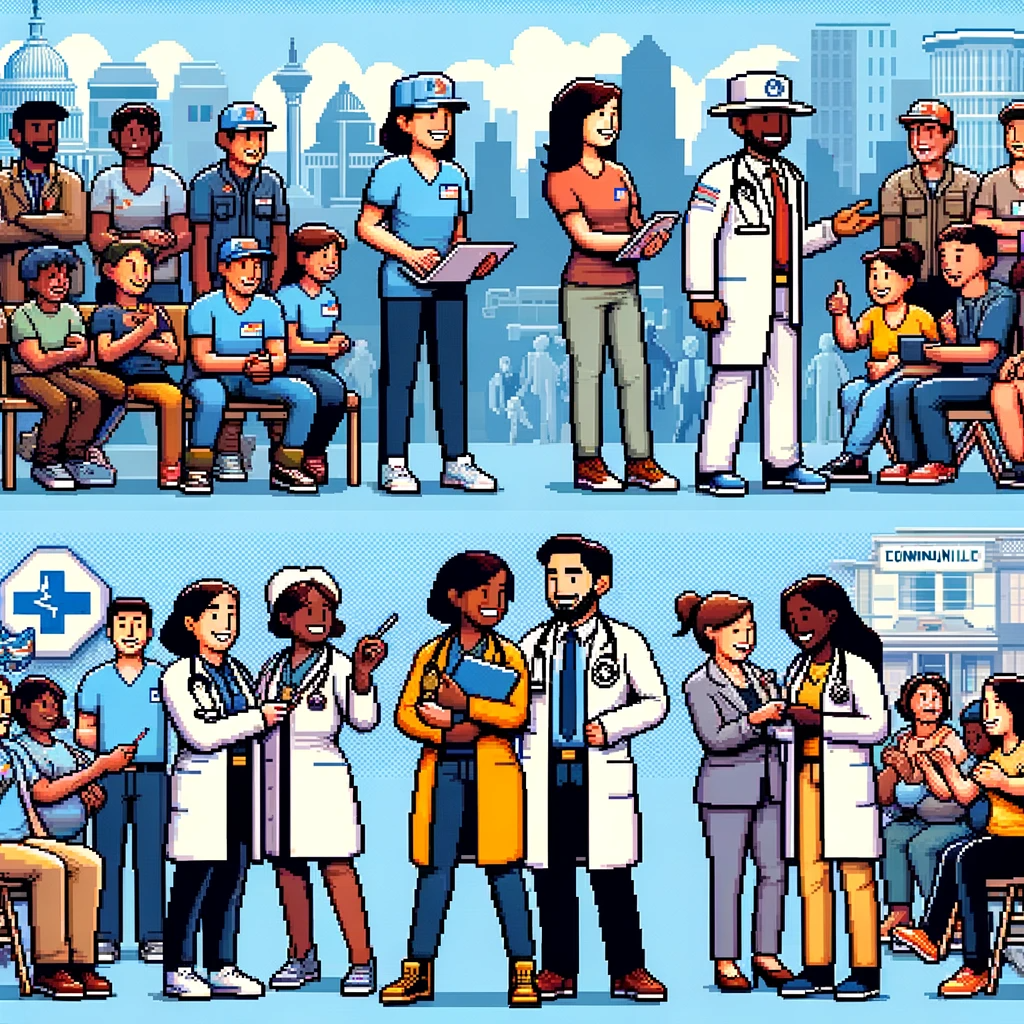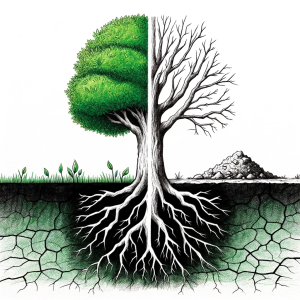
Community Health Workers: Bridging the Gap in U.S. Health Care and Public Health
In a world grappling with health inequities and inefficiencies, the role of Community Health Workers (CHWs) has become increasingly crucial. A recent article in the Annual Review of Public Health, titled “Community Health Worker Integration with and Effectiveness in Health Care and Public Health in the United States”, sheds light on the significant contributions and potential of CHWs in the American healthcare landscape. This blog aims to distill the essence of this insightful article, making it accessible to those with a high school education level while focusing on its implications for public health practice.
Who are Community Health Workers?
CHWs are front-line public health workers closely connected to the communities they serve. They act as liaisons between health/social services and communities, facilitating access to services and improving service delivery quality and cultural competence. Their multifaceted roles include outreach, community education, counseling, social support, and advocacy.
A Glance at CHWs in the U.S.
For over 70 years, CHWs have been active in various U.S. settings. They have been particularly instrumental in addressing health inequities, especially in marginalized communities, including Black, Latine, American Indian/Alaska Native, and Asian/Pacific Islander communities. CHWs improve access to care, cultural and linguistic competence, and overall health outcomes. They also address social and structural determinants of health, playing a vital role in advancing health equity.
The Impact of CHWs
The effectiveness of CHWs in the U.S. is well-documented. They have improved chronic disease management, increased access to preventive care, enhanced patients’ experience of care, and reduced healthcare costs. CHWs have also been pivotal in addressing social needs and advocating for systemic and policy changes.
Expanded Models of CHW Integration
In the U.S., the integration of Community Health Workers (CHWs) into the healthcare system takes various forms, each with unique characteristics and benefits:
- Community-Clinical Linkages: This model fosters partnerships between community-based organizations (CBOs) and healthcare institutions. CHWs in this setting play a crucial role in connecting individuals to primary or specialty care. They often engage in outreach, helping community members navigate the healthcare system, and may work on behalf of either a CBO or a healthcare provider. This model particularly effectively enhances healthcare delivery and access for underserved populations.
- Embedding CHWs in Healthcare Institutions: Another prevalent model involves CHWs being directly employed by healthcare institutions like hospitals and clinics. Here, CHWs are integral to healthcare teams, aiding in patient navigation, supporting care coordination, and providing culturally sensitive care. This close integration enables CHWs to effectively bridge the gap between patients and healthcare providers.
- Employment Through Health Payers: In some cases, CHWs are integrated into healthcare systems through employment by health insurance providers or payers. This model has gained traction, especially after the Affordable Care Act, with payers recognizing the value of CHWs in improving patient outcomes and reducing costs.
- Coordination by Public Health Departments: Public health departments also employ CHWs, particularly in response to public health crises. In this model, CHWs work across various health care entities and communities, focusing on public health initiatives and emergency response efforts.
Each of these models showcases the adaptability of CHWs in various healthcare settings, underscoring their importance in bridging health inequities and enhancing community health.
Expanded Future Direction for CHWs
As the U.S. healthcare system continues to evolve, the role of CHWs becomes increasingly integral:
- Understanding Current Evidence on CHW Effectiveness: A critical step in advancing CHW integration is comprehending their impact based on current research. This involves analyzing the effectiveness of CHWs in various settings, from managing chronic diseases to improving health equity.
- Developing Sustainable Financing Models: CHW programs often face financial instability. Developing robust and sustainable financing models, such as state or federal funding, grants, or integration into healthcare payment systems, is essential for the long-term viability of CHW programs.
- Ensuring High-Quality Evaluations of CHW Programs: Rigorous and systematic evaluations are necessary to assess the impact of CHW interventions. This includes using standardized metrics and methodologies to measure health improvements, cost-effectiveness, and patient satisfaction outcomes. Some great work is being done via the CHW common indicators project.
- Translating Evidence into Best Practices: The insights gained from research and evaluations should inform the development of best practices for CHW integration. This includes training, scope of work, community engagement strategies, and collaboration with healthcare providers.
Implications for Public Health Practice
The integration of CHWs into the U.S. healthcare system presents a promising avenue to address longstanding health disparities and inefficiencies. Their unique position within communities allows them to bridge gaps in healthcare accessibility and quality. For public health practitioners, recognizing and supporting the role of CHWs can be a game-changer in achieving more equitable health outcomes and a more efficient healthcare system.
In Conclusion
The role of CHWs in the U.S. healthcare system is crucial and growing. Their ability to bridge the gap between healthcare providers and communities, particularly marginalized ones, is invaluable. As we look to the future, supporting and integrating CHWs into healthcare and public health systems is essential for addressing health inequities and improving overall health outcomes.
Stay Current with Public Health!
Step into the role of a public health change-maker with ‘This Week in Public Health.’ Each issue brings you closer to the heartbeat of community health, innovative research, and advocacy. It’s more than news; it’s a platform for transformation. Subscribe for free and join a community of informed individuals driving positive change in public health every week.



